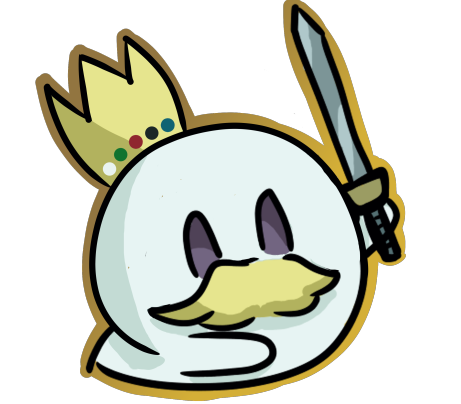Hello, everyone!
Today we will present a guide of a very interesting Amethyst/Ruby list that reached the top8 of the Challenge in Seattle, a tournament we discussed in our previous article. Let's go!
Introducing the Deck - Strategy and Gameplan
Amethyst/Ruby - Lorcana's Boogeyman?
Since the game's first set, the Amethyst/Ruby combination has been frequent in tournaments, as it combines two extremely relevant dynamics in any card game: card draw and board control.
The "classic" version of the deck was previously analyzed in this article here, but in short: it is a “control” deck, which means it doesn't seek to win the game quickly, but rather to counter the opponent's moves while accumulating more resources for itself, and once it is firmly in the driver's seat, it quickly achieves a win condition thanks to some high-Lore characters.
But it would be a mistake to think that the version we're going to show, used by Jonathan Ball to reach the top8 of the Disney Lorcana Challenge in Seattle, is just another one like the others! Let's take a look at the list and see these differences:
Understanding “burn” control
“Burn” is a name given to a common strategy in other card games (especially Magic: the Gathering), in which instead of using cards to combat the opponent's cards, cards are used that directly attack the opponent, without depending on the board.
In Lorcana, you normally need characters on the board to obtain Lore, and thus reach the 20 points needed to win the game. However, this is where the Amethyst/Ruby list innovation comes in, because they used cards that directly increase your Lore!
But what's the advantage in using such cards? This is a strategy so that the opponent have a lot of “dead cards” (that is, useless) in their hand, and as control decks normally use several cards that interact with the board, the “Burn” version of Amethyst/Ruby plays very well against other control decks (like Amethyst/Ruby)!
Let's break down some cards from the decklist:
The “burn” - direct Lore gain

Look how many direct ways to get Lore! If we add up the possible Lore gain among the copies of the Actions and Characters above, we have more than 20 Lore, more than necessary to even win the game!
Of course, we won't necessarily see all the cards in the deck during one game, so there is a redundancy in the effects precisely to ensure that we reach 20 Lore with the available resources.
In order to achieve a critical mass of effects that gain Lore, it is also necessary to draw a lot of cards! But this is cakewalk for this deck:
Drawing cards

There are in total twenty-four cards that draw at least 1 card, which helps immensely in finding either the Lore gain cards (when we're just focused on winning the game quickly) or some control cards (when the opponent has a better board or threatens to win faster than us).
It is very clear that drawing cards is the “mission” of the Amethyst side of the deck, while the Ruby side is in charge of board control:
Board control

As usual, Be Prepared is a slam dunk, as it is one of the best overall cards in the game. The other Ruby cards here are practically the “control package” you would expect from this kind of deck, with the goal of responding to any threat from your opponent while we continue to advance our Lore directly.
We also need to highlight the “intruder” Amethyst, Peter Pan - Shadow Finder, whose job is very clear: eliminate Diablo - Devoted Herald as soon as possible. Although Brawl also has this function, the redundancy is justified by the importance of not letting Emerald/Steel have a snowball effect on the game, nullifying our card draw and obtaining Lore faster than our deck.
Analysis and Turn Strategy
Starting hand and first 3-4 turns: be careful with your uninkable cards, as they can hinder your initial development. In general, you want a mix of board control cards and card draw, in order to increase your resources and counter your opponent's plays.
Midgame, turns 4-8: Once the board is under control, you need to calculate how quickly you can reach 20 Lore, and also calculate whether the opponent can threaten to reach 20 in that same time (or less). If the opponent is faster, look for cards that'll put you ahead in Lore and slow the opponent down, like A Pirate’s Life. Don't be afraid to use several characters to sing the pirates' song and then reset everything with Be Prepared - remember, you can win without characters in the board!
Long game, turns 9+: this is the sweet spot in the game the deck, as characters that are banished usually grant more cards in hand (like Kuzco - Wanted Llama, for example) and your “Burn” guarantees that you achieve victory without using characters! Normally long games like this indicate that you are against another Control deck, and as we noted, this version of Amethyst/Ruby has an advantage on such matches.
Conclusion
It's always great to see even "solved" decks can evolve, and it indicates that while there is a stable metagame, it certainly isn't an oppressive one - after all, there is still plenty of room to innovate and be successful, as shown by the team that developed the Amethyst/Ruby Burn for the Seattle DLC.
The “Burn” strategies have been gaining efficient tools with each new set, so we will probably have some updates for this deck next season, with the arrival of Azurite Sea.
And last but not least, a strategy that plays well against other control strategies could be exactly what you need to “shake up” your local metagame!
What did you think of the analysis? Have you ever made changes to a “consolidated” archetype and taken it to a tournament? Share with us!
Hugs and see you next time!













— Комментарии 0
, Реакции 1
Прокомментируйте первым